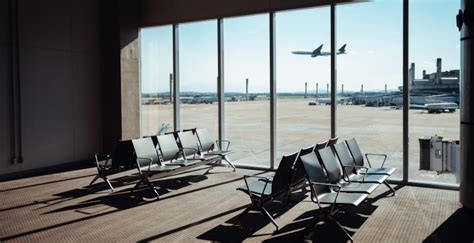
Travelers around the globe are stranded after Icelandic budget airline PLAY abruptly ceased operations on Tuesday, canceling all flights and leaving thousands in limbo. The airline cited an inability to secure crucial long-term financing as the primary reason for its immediate shutdown, marking a significant disruption in transatlantic travel and triggering widespread concern among passengers holding PLAY tickets.
The Reykjavik-based carrier announced the cessation of all flight operations effective immediately on Tuesday morning, leaving passengers scrambling to find alternative routes and accommodations. The sudden collapse of PLAY, which offered low-cost flights between North America and Europe via Iceland, has sparked chaos at airports and widespread frustration among travelers. The airline attributed its downfall to the failure to finalize a critical funding round necessary to sustain its operations through the typically lean winter months.
“We regret to announce that PLAY has ceased operations effective immediately,” the airline stated in a brief announcement posted on its website. “Despite our best efforts, we were unable to secure the long-term financing necessary to continue operating. This is a deeply disappointing day for all of us at PLAY, and we sincerely apologize to our passengers for the disruption this will cause.”
The airline’s website offered limited information, directing passengers to contact their travel insurance providers or credit card companies to seek refunds for unused tickets. The abrupt closure has raised questions about the airline’s financial stability and the oversight of budget carriers in the competitive transatlantic market.
Stranded Passengers and Travel Disruption
The immediate impact of PLAY’s collapse is the widespread stranding of passengers across continents. Many travelers are stuck in transit hubs, foreign cities, or their departure points, facing unexpected expenses for accommodation, meals, and rebooked flights. The timing of the shutdown, occurring during the busy summer travel season, exacerbates the challenges faced by affected passengers.
Social media platforms are flooded with complaints and appeals for assistance from stranded PLAY passengers. Many have expressed anger and frustration at the lack of notice and support from the airline. Some passengers reported being notified of the cancellations only upon arrival at the airport, while others received generic emails with limited information about refund procedures.
“I’m stuck in Reykjavik with no flight home and no help from PLAY,” wrote one passenger on Twitter. “They just cancelled my flight and told me to contact my credit card company. This is a nightmare.”
The disruption extends beyond individual travelers, impacting tour operators, travel agencies, and other businesses that relied on PLAY’s low-cost fares. These businesses now face the challenge of rebooking clients and mitigating financial losses resulting from the airline’s collapse.
Financial Troubles and Failed Funding
While the immediate cause of PLAY’s shutdown is the failure to secure long-term financing, the airline’s financial troubles have been brewing for some time. The airline, which launched operations in 2019, has struggled to achieve profitability in the highly competitive transatlantic market. PLAY faced challenges from established legacy carriers, as well as other budget airlines, all vying for market share.
The airline’s business model, which relied on attracting price-sensitive travelers with low fares, proved vulnerable to fluctuations in fuel prices, currency exchange rates, and overall economic conditions. The COVID-19 pandemic further exacerbated PLAY’s financial woes, as travel restrictions and decreased demand significantly impacted its revenue.
In recent months, PLAY’s management had been actively seeking new investors to shore up its finances and provide the capital needed to sustain operations through the winter. The airline had reportedly been in discussions with several potential investors, but ultimately failed to reach an agreement.
“We explored every possible avenue to secure additional funding, but unfortunately, we were unable to reach a viable solution,” said a PLAY spokesperson in a statement. “The current market conditions, combined with our existing financial challenges, made it impossible for us to continue operating.”
The failure to secure funding is a significant blow to Iceland’s aviation industry, which has seen a rapid expansion of budget airlines in recent years. PLAY’s collapse raises questions about the long-term sustainability of the low-cost model in the transatlantic market and the potential risks for travelers who rely on these airlines.
Impact on the Aviation Industry
PLAY’s failure sends ripples through the aviation industry, raising concerns about the viability of ultra-low-cost carriers (ULCCs) in a volatile market. The transatlantic route, while lucrative, is also highly competitive, demanding operational efficiency and substantial capital reserves. PLAY’s demise underscores the challenges faced by smaller airlines in sustaining operations amid fluctuating fuel costs, economic downturns, and unforeseen global events like pandemics.
Analysts suggest that PLAY’s business model, predicated on high passenger volumes and minimal ancillary revenue, was particularly vulnerable to market shocks. The airline’s limited route network and reliance on a single hub in Reykjavik also constrained its ability to diversify revenue streams and mitigate risks.
The collapse of PLAY could lead to increased scrutiny of other ULCCs, with investors and regulators likely to demand greater transparency and financial stability. Airlines may face pressure to adopt more conservative growth strategies and prioritize profitability over rapid expansion.
Legal and Regulatory Implications
PLAY’s shutdown raises several legal and regulatory questions, particularly concerning passenger rights and consumer protection. Passengers holding unused tickets are entitled to refunds under various consumer protection laws and regulations, including those established by the European Union and the United States Department of Transportation (DOT).
However, the process of obtaining refunds may be lengthy and complex, particularly in cases where the airline is insolvent. Passengers may need to file claims with their travel insurance providers, credit card companies, or government agencies to recover their losses.
The Icelandic government is likely to face questions about its oversight of PLAY and the extent to which it monitored the airline’s financial health. Regulators may also review the licensing and certification processes for new airlines to ensure that they meet stringent financial and operational standards.
The sudden collapse of PLAY highlights the need for greater international cooperation in regulating the aviation industry and protecting passenger rights. A harmonized framework for airline insolvency and passenger compensation could help to mitigate the impact of future airline failures and ensure that travelers are adequately protected.
The Future of Transatlantic Travel
PLAY’s exit from the transatlantic market creates a void that other airlines will likely seek to fill. Established legacy carriers, as well as other budget airlines, may expand their routes and increase capacity to capitalize on the reduced competition.
However, the long-term impact of PLAY’s collapse on transatlantic fares remains uncertain. While some airlines may initially offer discounted fares to attract passengers, prices could eventually rise as demand increases and competition decreases.
The future of transatlantic travel will also depend on broader economic trends, including the pace of global economic recovery, fluctuations in fuel prices, and changes in consumer travel patterns. The airline industry will need to adapt to these evolving conditions to ensure its long-term sustainability and provide affordable travel options for passengers.
The failure of PLAY serves as a cautionary tale for the airline industry and a reminder of the challenges of operating in a highly competitive and volatile market. The collapse underscores the importance of financial stability, prudent management, and a customer-centric approach to ensure the long-term success of airlines.
Government and Industry Response
Following PLAY’s announcement, government agencies and industry associations have begun to address the fallout. The Icelandic government has stated it will work to assist stranded passengers, though specific measures remain unclear. Aviation authorities in both Europe and North America are monitoring the situation to assess the broader impact on air travel.
Industry experts suggest that other airlines may increase capacity on transatlantic routes to accommodate displaced passengers, but warn that last-minute fares could be significantly higher. Travel agencies are working to rebook passengers, but face challenges due to limited availability and increased prices.
The situation highlights the importance of travel insurance, which can provide coverage for flight cancellations and other travel disruptions. However, many passengers may not have purchased insurance or may find that their policies do not fully cover the costs associated with PLAY’s collapse.
The long-term consequences of PLAY’s failure on the Icelandic economy are also a concern. The airline’s operations had contributed to the country’s tourism sector, and its closure could lead to job losses and reduced economic activity.
Long-Term Implications for Budget Airlines
The failure of PLAY underscores the precariousness of the budget airline model, particularly in the highly competitive transatlantic market. Budget airlines often operate on razor-thin margins, making them vulnerable to economic downturns, rising fuel costs, and unexpected events.
To succeed, budget airlines need to maintain strict cost control, generate ancillary revenue, and operate with high efficiency. They also need to have a strong financial foundation to withstand periods of low demand or unexpected expenses.
The collapse of PLAY may lead to a reassessment of the budget airline model, with investors and regulators taking a closer look at the financial health and operational practices of these carriers. Airlines may need to adopt more conservative growth strategies and prioritize profitability over rapid expansion.
Ultimately, the future of budget airlines will depend on their ability to adapt to changing market conditions and maintain a sustainable business model. Airlines that can offer competitive fares while providing reliable service and strong customer support are more likely to succeed in the long run.
Passenger Recourse and Advice
For passengers affected by PLAY’s shutdown, the immediate priority is to secure alternative travel arrangements and seek refunds for unused tickets. Here are some steps that passengers can take:
- Contact your travel insurance provider: Check your policy to see if it covers flight cancellations and other travel disruptions. File a claim as soon as possible.
- Contact your credit card company: If you purchased your tickets with a credit card, you may be able to dispute the charges and receive a refund.
- Contact PLAY’s customer service: Although the airline has ceased operations, it may still be possible to file a claim for a refund. Be prepared for potential delays in processing your claim.
- Monitor airline websites and social media: Stay informed about potential alternative flights and assistance programs.
- Document all expenses: Keep records of all expenses incurred as a result of the flight cancellations, including accommodation, meals, and rebooked flights. This documentation will be helpful when filing claims.
Passengers should also be aware of their rights under consumer protection laws and regulations. The European Union, for example, has regulations that require airlines to provide compensation to passengers for flight cancellations and delays. The U.S. Department of Transportation also has rules that protect airline passengers.
In the wake of PLAY’s demise, travelers are urged to exercise caution when booking flights with budget airlines. Consider purchasing travel insurance, paying with a credit card, and researching the airline’s financial stability before making a reservation.
FAQ Section:
1. Why did PLAY airline shut down? PLAY airline ceased operations due to its inability to secure the necessary long-term financing needed to sustain its operations, particularly during the typically slower winter months. According to their statement, “Despite our best efforts, we were unable to secure the long-term financing necessary to continue operating.”
2. What should I do if I had a flight booked with PLAY? If you had a flight booked with PLAY, the airline advises you to contact your travel insurance provider or credit card company to seek refunds for unused tickets. Monitor airline websites and social media for potential alternative flights.
3. Will I get a refund for my PLAY flight? You are entitled to a refund for unused tickets. Begin by contacting your travel insurance provider or credit card company to dispute the charges. The process may be lengthy due to the airline’s insolvency. File claims with all relevant parties and document all expenses.
4. What happens to the transatlantic routes that PLAY used to operate? Other airlines will likely seek to fill the void left by PLAY on transatlantic routes. Established legacy carriers and other budget airlines may expand their routes and increase capacity to capitalize on the reduced competition. However, the long-term impact on transatlantic fares is uncertain.
5. Is this common for budget airlines? What does it mean for the future? While not always common, the failure of PLAY highlights the risks associated with the budget airline model, particularly in the competitive transatlantic market. It could lead to increased scrutiny of other ULCCs. For the future, airlines may need to adopt more conservative growth strategies and prioritize profitability over rapid expansion.
Detailed Analysis of the Shutdown
The collapse of PLAY airlines is not an isolated incident but a symptom of broader challenges facing the airline industry, particularly the low-cost carrier (LCC) segment. Several factors contributed to PLAY’s downfall, and understanding these provides valuable insights into the dynamics of the transatlantic market and the vulnerabilities of budget airlines.
1. Overcapacity and Intense Competition: The transatlantic market is characterized by intense competition among numerous airlines, including established legacy carriers and a growing number of LCCs and ULCCs. This overcapacity leads to fare wars, putting pressure on airlines to lower prices to attract passengers. PLAY, as a relatively new entrant with limited brand recognition, struggled to compete with larger and more established players.
2. Fuel Price Volatility: Fuel is a significant expense for airlines, accounting for a substantial portion of their operating costs. Fluctuations in fuel prices can have a significant impact on an airline’s profitability, especially for LCCs that operate on thin margins. PLAY, like other budget airlines, was vulnerable to fuel price volatility, and rising fuel costs likely contributed to its financial difficulties.
3. Currency Exchange Rate Fluctuations: PLAY, based in Iceland, was exposed to currency exchange rate fluctuations, particularly between the Icelandic króna and the U.S. dollar and the euro. Changes in exchange rates can impact an airline’s revenue and expenses, making it difficult to manage finances and maintain profitability.
4. COVID-19 Pandemic Impact: The COVID-19 pandemic had a devastating impact on the global airline industry, with travel restrictions and decreased demand leading to significant revenue losses for airlines. PLAY, which launched operations shortly before the pandemic, was particularly vulnerable to the crisis. While travel demand has rebounded in recent months, the lingering effects of the pandemic continue to pose challenges for airlines.
5. Failure to Secure Long-Term Financing: The immediate cause of PLAY’s shutdown was its inability to secure the necessary long-term financing to sustain its operations. This failure suggests that investors were not confident in the airline’s long-term prospects, likely due to the factors mentioned above. Without adequate funding, PLAY was unable to weather the challenges of the competitive transatlantic market.
6. Hub and Spoke Model Limitations: PLAY operated a hub-and-spoke model, with Reykjavik as its main hub. This model can be efficient for connecting passengers between different destinations, but it also makes the airline vulnerable to disruptions at its hub. Weather conditions, air traffic control delays, or other unforeseen events at Reykjavik could significantly impact PLAY’s operations.
7. Ancillary Revenue Challenges: LCCs and ULCCs rely heavily on ancillary revenue, such as baggage fees, seat selection fees, and onboard sales, to supplement their fare revenue. PLAY, like other budget airlines, likely faced challenges in generating sufficient ancillary revenue to offset its low fares.
8. Brand Recognition and Customer Loyalty: As a relatively new airline, PLAY lacked the brand recognition and customer loyalty of established carriers. Building brand awareness and attracting repeat customers requires significant investment in marketing and customer service. PLAY’s financial difficulties likely limited its ability to invest in these areas.
Impact on Iceland’s Economy and Tourism
The collapse of PLAY is a blow to Iceland’s economy and tourism sector, which has become increasingly reliant on air travel in recent years. The airline’s operations had contributed to the country’s tourism industry by providing affordable flights to and from Iceland. PLAY’s closure could lead to a decrease in tourist arrivals, impacting hotels, restaurants, tour operators, and other businesses that cater to tourists.
The Icelandic government may need to take steps to mitigate the economic impact of PLAY’s failure, such as providing support to affected businesses and promoting Iceland as a tourist destination. The government may also consider reviewing its aviation policies to ensure the long-term sustainability of the country’s airline industry.
The loss of PLAY could also impact Iceland’s connectivity to other parts of the world. The airline had provided important links to North America and Europe, and its closure could make it more difficult and expensive for Icelanders to travel abroad and for foreign visitors to reach Iceland.
Lessons Learned and Future Outlook
The collapse of PLAY provides valuable lessons for airlines, investors, and regulators. The incident underscores the importance of financial stability, prudent management, and a customer-centric approach in the airline industry. Airlines need to have a strong financial foundation to withstand economic downturns, rising fuel costs, and other challenges.
Investors need to carefully assess the financial health and operational practices of airlines before investing in them. Regulators need to ensure that airlines meet stringent financial and operational standards to protect passengers and maintain the integrity of the aviation system.
The future of the airline industry is uncertain, but several trends are likely to shape its development. These include the continued growth of LCCs and ULCCs, the increasing use of technology to improve efficiency and customer service, and the growing focus on sustainability and environmental responsibility. Airlines that can adapt to these changing conditions and maintain a sustainable business model are more likely to succeed in the long run.
The situation highlights the need for travelers to be aware of the risks associated with booking flights with budget airlines. Consider purchasing travel insurance, paying with a credit card, and researching the airline’s financial stability before making a reservation.









